
Sweet-toothed fans have been enjoying their creations - from After Eights to chunky Yorkie bars and tangy Fruit Pastilles - for decades.
But, since was founded in York in 1862 by Henry Rowntree, it has become as famous for its philanthropy as it is for its confectionery.
Supreme among its social reformers was its second owner, whose passing 100 years ago on February 24 was such a loss to the nation that the Daily devoted its front page to his funeral.
Thousands of people lined the cobbled streets of York to pay their respects. Flags were flown at half mast and businesses shut up shop for the day. For the Quaker businessman was so much more than a chocolatier. He was a visionary and
READ MORE:

Joining the business in 1869, he not only contributed to its international success, he made the family company a popular employer, by providing workers with fair wages, free education and affordable housing - building New Earswick village for people on low incomes, including factory staff, providing decent homes at affordable rents.
And he made sure they had access to a social welfare officer, doctor and a dentist way before the was established.
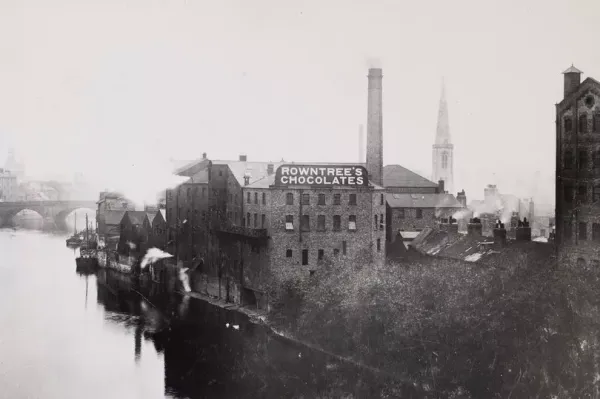
Nick Smith, executive director of The Rowntree Society, tells The Mirror: “Joseph Rowntree and the Rowntree family were involved in social issues before the brand took off and their international business enabled them to improve people’s lives on a much bigger scale.
“Even before the company had trade unions, Joseph set up a worker’s democracy and provided access to lifelong education for workers. All this during the late 19th and early 20th centuries, when we didn’t have the education system we have now.”
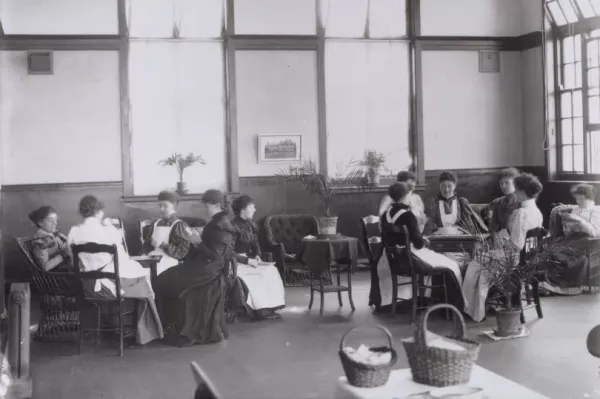
Joseph created communities where workers could enjoy activities outside work, like sport and theatre - helping to make people feel like they belonged.
Passionate about women’s rights, he allowed female workers to vote on important issues affecting the business long before they could vote in general elections.
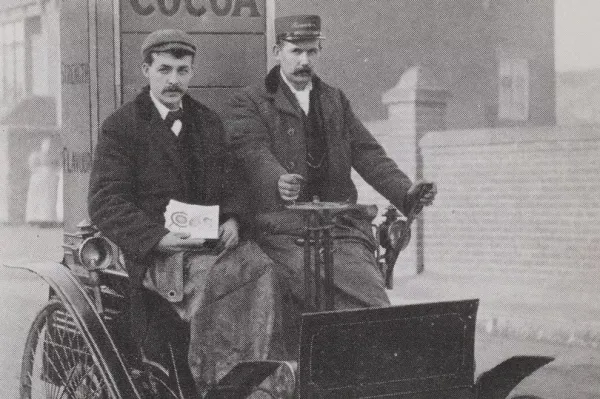
“He was ahead of his time - a lot of his ideas really resonate today - and he made things happen,” Nick adds. “What was important to him was that things got better for people and, after he died, a lot of his descendants - like his son Benjamin Seebhohm - picked up his torch and carried on running with it”.
Benjamin, known as Seebohm, did in-depth studies into poverty in York and later used his position as a director of Rowntree’s to advocate for better working conditions for employees.
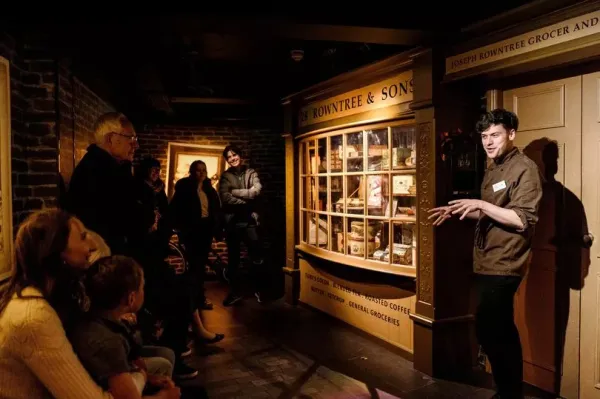
In 1896 he introduced an eight-hour day, a pension scheme in 1906, a five-day (44-hour) working week and a profit-sharing scheme for employees in 1923 - all a continuation of the good work his father started.
As for the sweets and chocolates … KitKats, Smarties, Lion Bars, After Eights. Who could ever resist such temptation?
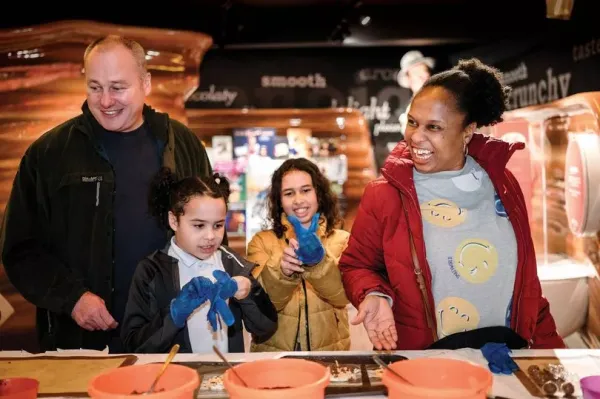
Every day, hundreds of tourists still flock to York’s Chocolate Story on the city’s King’s Square to learn all about the history of chocolate.
Just a ten-minute walk away is the original Rowntree’s factory - now owned by Nestle - where family favourites are still produced.
Serena Redshaw, guest experience manager at the interactive attraction says: “Joseph Rowntree was a massive influence here in York. Being a Quaker, he really looked after his workers, providing them with pension plans, holiday pay and sick pay long before it was the norm. He shaped York as it is known today.”

The day before we spoke, despite being chilly February, 500 tourists visited the museum to learn about the heritage brand and how Joseph Rowntree changed people’s lives, according to Serena.
“We’ve built a replica of his old grocer’s shop where visitors can learn about his early days and how he got into chocolate making and made chocolate more affordable,” she explains. “We have a chocolate workshop for children where they get to make a lollipop and see how chocolate is made.”

And they are, of course, impressed to learn that the Cadbury and Rowntree families inspired Roald Dahl’s much loved Charlie and the Chocolate Factory book.
They hear how, despite their sweet produce, during the author’s childhood - back in the first half of the 20th century - the two firms were bitter rivals.
“There’s a rumour that Rowntree Park was built in front of the Cadbury factory, because they were thinking of expanding and that would stop them,” Serena says. “But there were times when the two rival companies worked together as well - like during the war, when they both produced chocolate to send to the soldiers.”

But the Rowntree family was decades ahead of its time - both with its tempting treats and with its attitude to social reform.
Now, 100 years after his death, the Joseph Rowntree Foundation is still working to end poverty in the UK and the Joseph Rowntree Charitable Trust supports people who address the root causes of conflict and injustice.
And the Foundation, together with Nestlé - which has stuck to the reforming script of the family - were among the first organisations in the UK to pay the Living Wage, which would undoubtedly have proved to Joseph that sharing success is sweet.
Rowntree favourite treats include:
Fruit Pastilles: Introduced in 1881, these were Rowntree's first fruit sugar sweet in five flavours: blackcurrant, lemon, strawberry, lime and orange.
Fruit Gums: Introduced in 1893
After Eight: Thin mint chocolates introduced in 1962
Yorkie and Lion bars: Introduced in 1976
Kit Kat: Introduced in 1935
Aero: Introduced in 1935
Smarties: Introduced in 1937
Polos: 1948
Rowntrees’ Tooty Fruities 1963
Rowntrees Jelly Tots 1965
READ MORE: